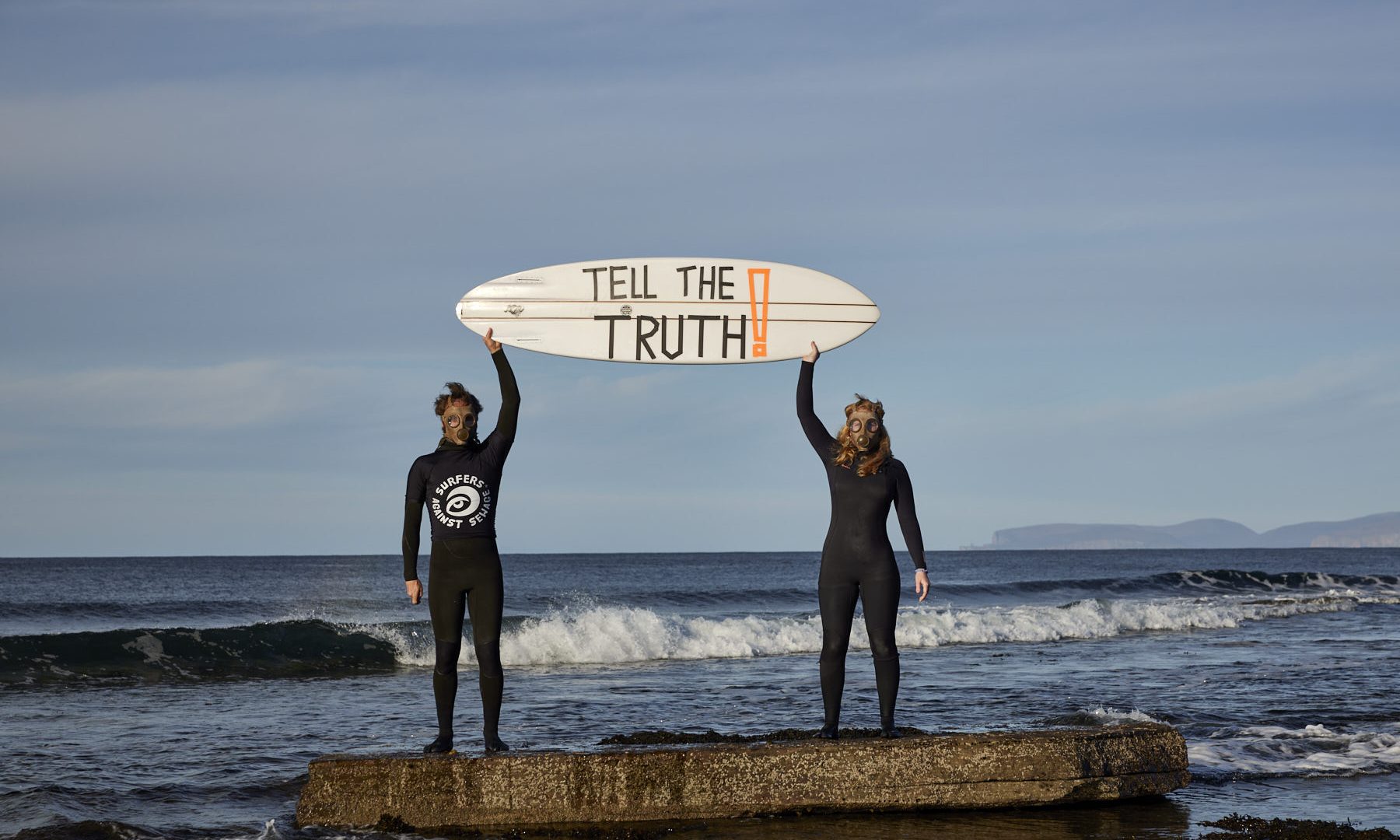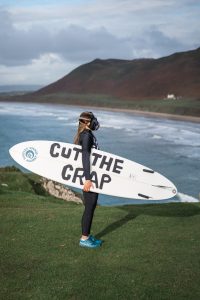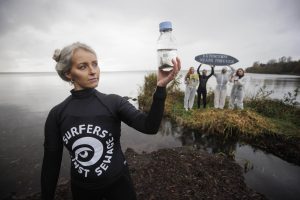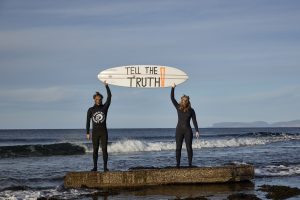
Press Release: 2023 Water Quality Report Launch
Surfers Against Sewage release their annual Water Quality Report
Surfers Against Sewage finds popular sites for bathing in England fail to meet minimum safety requirements
60% of inland bathing spots monitored by SAS over the 2023 bathing season would be classified as ‘poor’ based on Environment Agency methods
- Surfers Against Sewage (SAS) supported 20 communities to ‘bridge the gap’ left by inadequate and inefficient official testing regime.
- SAS’s annual water quality report brings together citizen science data, EDM data, and figures from SAS’s Safer Seas and Rivers Service to paint a picture of water quality across the UK.
- The report highlights a severe lack of monitoring in Scotland and Northern Ireland and unearths a shocking reliance on emergency sewage discharges in Wales.
A new report released today reveals that multiple popular inland swimming sites in England are unsafe for water users. 40 locations were sampled weekly by volunteer citizen scientists throughout the 2023 bathing season. 20 were popular sites for bathing, and 20 were upstream of a nearby sewage overflow associated with the swimming spots.
Of the 40 locations, SAS found that 24 would be deemed ‘poor’ quality were they designated bathing waters, as per Environment Agency methodology. Four out of 20 bathing sites showed a clear decrease in water quality from locations upstream to downstream of a sewage overflow. The data is released just weeks after the Government announced its intention to diverge from the EU’s standards for monitoring water quality in England.
Surfers Against Sewage’s (SAS) annual water quality report explores the shocking state of UK bathing waters in a year when untreated sewage was discharged over 399,864 times into UK waterways – the equivalent of more than 1,000 discharge events every day. The report notes that the majority of overflows in Scotland and Northern Ireland go unreported, meaning this figure is likely a significant underestimate of the true frequency of sewage discharges into the UK’s rivers and seas. In Scotland only 4% of sewage overflows are monitored whilst Northern Ireland Water admits it lacks the ability to record or measure when sewage discharges occur.
Meanwhile, SAS have unearthed documents that indicate that Welsh Water have used emergency overflows –

Credit Jack Abbott 2023, Rhossili
permitted only in the case of catastrophic events – to release sewage into a designated bathing water multiple times over the last two years. The Gwbert Emergency Overflow, which impacts the designated bathing water of Poppit Sands, discharged 24 times in the same number of months, indicating a clear breach of permit.
Giles Bristow, CEO of Surfers Against Sewage, said: “Yet again, our annual water quality report reveals the complacency and disregard of governments, water companies and regulators towards the health of rivers and coastlines in the UK – and by extension people’s health. How much do our blue spaces need to suffocate in sewage before those we elect to keep us safe and protect our environment wake up and smell the shit?
Sicknesses in the UK due to sewage pollution reported to SAS reached 1,924 cases in the last year – nearly triple the number of cases reported a year prior. These cases resulted in 1,987 days taken off sick, which translates to 5 years of work lost to ill health caused by polluted waters. Many of these sicknesses have led to hospitalisation, events cancelled, earnings lost, and businesses closed. As this data just relates to cases reported to SAS, these numbers are likely only the tip of the iceberg.
This year Reuben Santer, a physics teacher at a secondary school in Exeter, was forced to stop working after contracting labyrinthitis (an inner ear infection) following a surf at Saunton Beach in Devon. Doctors confirmed the infection was due to a virus or bacteria entering Santer’s ear during his surf. The infection later developed into an incurable condition called Ménierè’s disease.
Reuben Santer said: “I have never been anxious about anything in my life, but this experience has definitely made me worried that symptoms will come back when driving, surfing, at work, or in any situation where vertigo could be dangerous.”
The report also highlights the impact that sewage is having on independent businesses, and the livelihoods of those who run them.
Steve Crawford, who until recently ran a surf shop in Scarborough’s South Bay, said: “My shop has been closed all summer. From the 6th May the RNLI put the red flags up as the beach was at a poor quality here in Scarborough. A week later the council took all the flags down and put warning signs up. I decided at that point that I can’t take people surfing.”
“I couldn’t carry out any lessons on the beach when the lifeguards themselves think it’s unfit to go in. My income stopped dead on the 6th May .It’s only because my dad died last year that I’m surviving now because I was left some money. If it wasn’t for that I would be out on the street.”
This year’s water quality report is designed to empower communities across the UK to put pressure on their local representatives in the lead-up to a general election in 2024. In the last year, thousands have joined the protest for safer rivers and seas, with over 45,000 emails sent via SAS’s free Safer Seas and Rivers Service app to MPs and water company CEOs, calling for action to protect the UK’s waterways from further pollution.
This year SAS developed the End Sewage Pollution Manifesto, which sets out the policies needed to clean up our rivers and seas. Created in collaboration with environmental charities, sports governing bodies and community groups around the UK, the manifesto suggests a five-point plan to make the UK’s waters healthy and safe to enjoy again:
- Enforce the law and regulations
- Stop pollution for profit
- Prioritise high-risk pollution events
- Empower a nature-led approach to tackling sewage pollution
- Reveal the truth by ensuring UK-wide transparency on sewage pollution.
ENDS
For more information, interviews and high-res images, please contact Greenhouse Communications:
Fiona Stainer fiona.stainer@greenhouse.agency 07851772512
Bethan Thomas bethan.thomas@greenhouse.agency 07759896399
NOTES TO EDITORS
About the water quality report
The 2023 water quality report will be published here. The 2022 report can be accessed here.
About the citizen science data
A total of 40 sites were investigated for the citizen science water quality testing programme. This included 20 locations throughout the UK where communities are applying for Designated Bathing Water status, and a further 20 sites upstream of a nearby sewage overflow (to find out if sewage discharges are causing a decrease in quality).
A community of citizen scientists guided by SAS collected data over an 18-week period (May – Sept 2023). This data has been collated and used to replicate Bathing Water Classifications. These classifications use the EA statistical technique to categorise each sampling location into either Excellent, Good, Moderate, or Poor, depending on the levels of E. coli and Enterococci in the samples. The statistical technique looks at the average values over the season, as well as how much the values change over time, to determine the probability of the location being hazardous for water-users health.
About Surfers Against Sewage – https://www.sas.org.uk
Surfers Against Sewage is a grassroots environmental charity based in Cornwall, dedicated to the protection of the ocean, waves, beaches and wildlife. It was created in 1990 by a group of Cornish surfers from the villages of St Agnes and Porthtowan on the north coast of Cornwall. The charity’s ambition is to end sewage discharge into UK bathing waters by 2030.
About the Safer Seas and Rivers Service – https://www.sas.org.uk/safer-seas-service/
Created by Surfers Against Sewage, the SSRS is the only national real-time water quality service that protects all water users from pollution. The pioneering service alerts water users when sewer overflows discharge untreated human sewage into the sea and when water quality is temporarily reduced due to heavy rainfall and pollution incidents.

EDITORIAL USE ONLY
(Left to right) Ali Bryans, Helen Armstrong, Carla Magee, Aine McAuley and Ruby Free at the shore of Lough Neagh for Surfers Against Sewage, Northern Ireland. Pictured date: Saturday October 28 2023. PA Photo. Photo credit should read: Liam McBurney/PA Wire

EDITORIAL USE ONLY Thurso, Scotland 2023. Credit should read: Mike Guest
